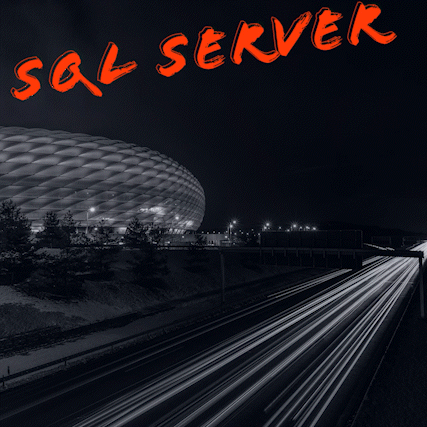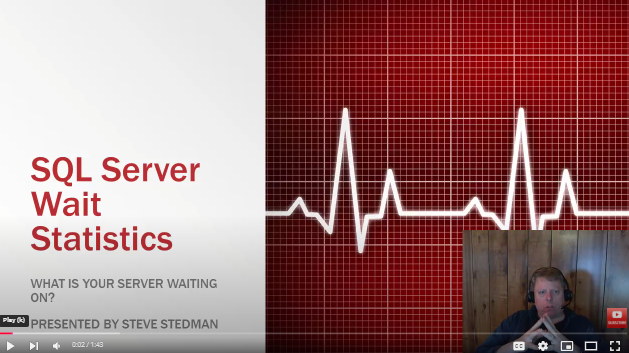Wait statistics, in the context of SQL Server, refer to the amount of time that a query spends waiting to access data in the database. When a client application requests data from the database, the request is placed in a queue and the client application must wait for its turn to access the data. The time that the query spends waiting is called a "wait" and is tracked by SQL Server. This information can be used to identify potential performance bottlenecks and optimize the performance of the database. Wait statistics are commonly used by database administrators to diagnose and troubleshoot performance issues in SQL Server.
SQL Server relies on wait types to indicate where delays might occur in its processing. The SQLTRACE_FILE_READ_IO_COMPLETION wait type is associated with SQL Trace, a feature used to monitor and capture events in SQL Server for troubleshooting and performance tuning. This wait type occurs when SQL Server is waiting for a file read operation to complete during a trace activity. Understanding this wait type can help identify issues related to disk I/O and trace file management.
What Is the SQLTRACE_FILE_READ_IO_COMPLETION Wait Type?
The SQLTRACE_FILE_READ_IO_COMPLETION wait type appears when SQL Server is performing a read operation on a trace file and is waiting for the operation to complete. Trace files are used to log captured events, and this wait type often points to delays caused by slow disk performance or heavy read workloads.
When Does SQLTRACE_FILE_READ_IO_COMPLETION Appear?
This wait type can occur in the following scenarios:
- Trace Session Activity When SQL Server is running a trace session and reading data from a trace file.
- Heavy Disk I/O If the storage subsystem hosting the trace files is slow or overloaded.
- Large Trace Files When trace files grow too large, increasing the time required for read operations.
- Simultaneous File Access When multiple processes are accessing the same disk, causing contention for I/O resources.
Why SQLTRACE_FILE_READ_IO_COMPLETION Waits Matter
While this wait type is expected in systems actively using SQL Trace, excessive or frequent waits may indicate underlying performance issues. Common causes include:
- Slow Storage Disk subsystems that are not optimized for sequential or random reads can delay trace file access.
- Trace Overload Running too many trace sessions or capturing an excessive amount of events can overwhelm the system.
- Large Files Trace files that are not regularly purged or rolled over can become large and unwieldy.
- High Concurrent Access Other processes competing for disk access can cause delays in trace file reads.
How to Address SQLTRACE_FILE_READ_IO_COMPLETION Waits
If this wait type is affecting performance, consider these strategies:
- Optimize Disk Performance Use high-speed storage systems such as SSDs to host trace files and reduce read delays.
- Manage Trace Sessions Limit the number of active trace sessions and capture only the events necessary for troubleshooting or performance analysis.
- Enable Trace File Rollover Configure trace sessions to roll over to new files when a size limit is reached, preventing files from becoming too large.
- Monitor Disk Activity Use tools to monitor disk contention and address competing workloads that may be slowing trace file access.
- Use Extended Events Consider transitioning from SQL Trace to Extended Events, a more lightweight and modern monitoring feature in SQL Server.
Monitoring SQLTRACE_FILE_READ_IO_COMPLETION Waits
To track this wait type and its impact over time, use the Historic Waits Monitoring feature in Database Health Monitor. This tool provides detailed insights into wait statistics, helping you identify patterns and address potential bottlenecks. By monitoring waits regularly, you can take proactive steps to maintain system performance and optimize trace activity.
Stedman Solutions specializes in SQL Server performance tuning and optimization. Whether youre experiencing SQLTRACE_FILE_READ_IO_COMPLETION waits or other performance challenges, our Database Health Monitor offers powerful monitoring tools, and our managed services provide expert support to keep your SQL Server environment running smoothly. Contact us today to learn how we can help improve your SQL Server performance and reliability.

Find out more about our SQL Server Managed Services
Applies to
Related Waits
SQLTRACE_BUFFER_FLUSHSQLTRACE_FILE_BUFFER
SQLTRACE_FILE_WRITE_IO_COMPLETIO
SQLTRACE_FILE_WRITE_IO_COMPLETION
SQLTRACE_INCREMENTAL_FLUSH_SLEEP
SQLTRACE_PENDING_BUFFER_WRITERS
SQLTRACE_SHUTDOWN
See Also
All Wait Types


